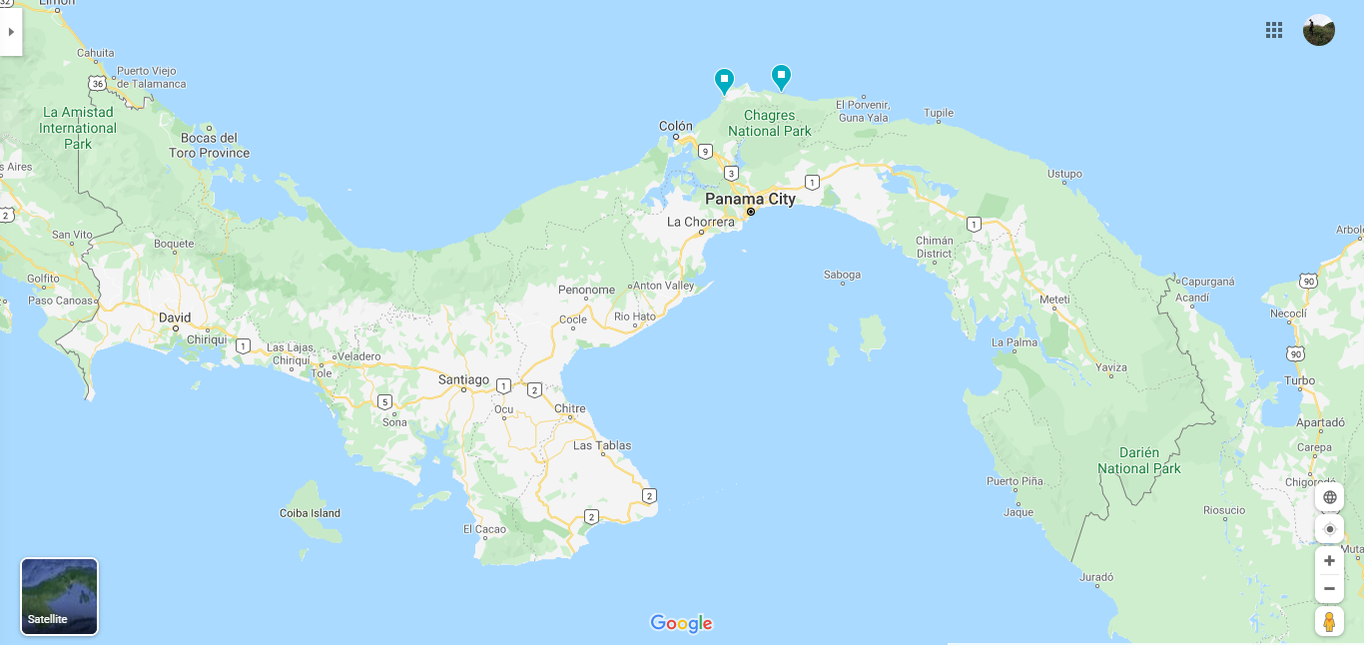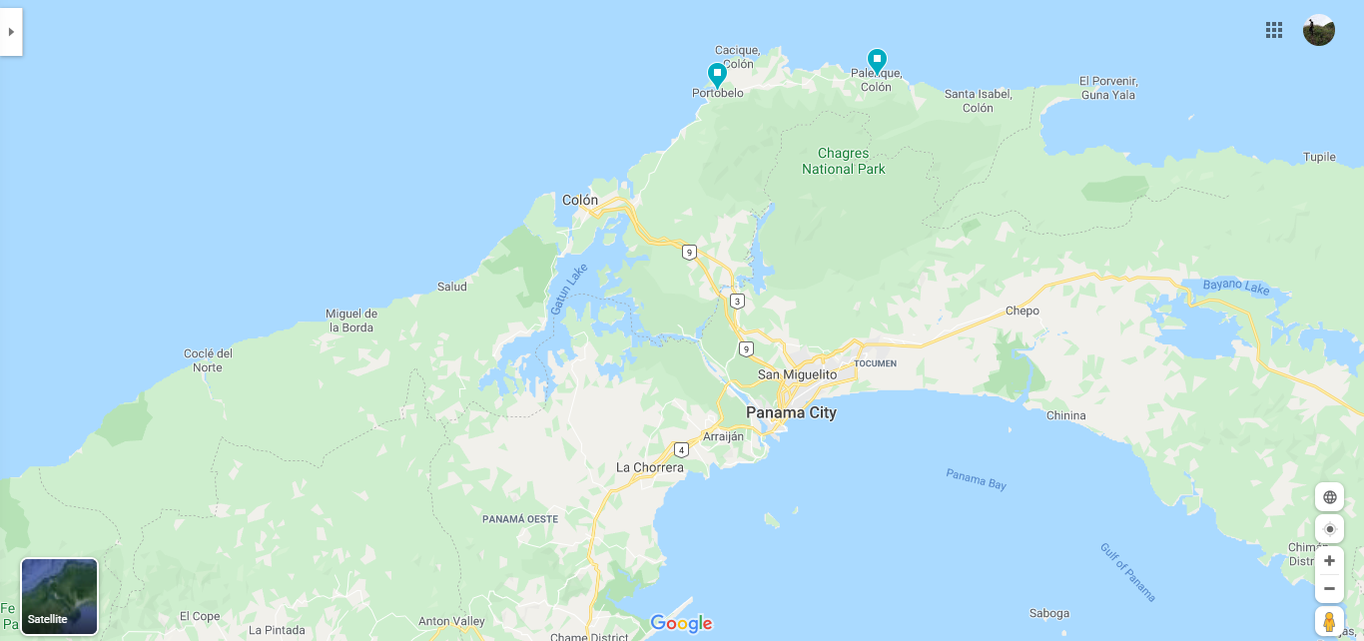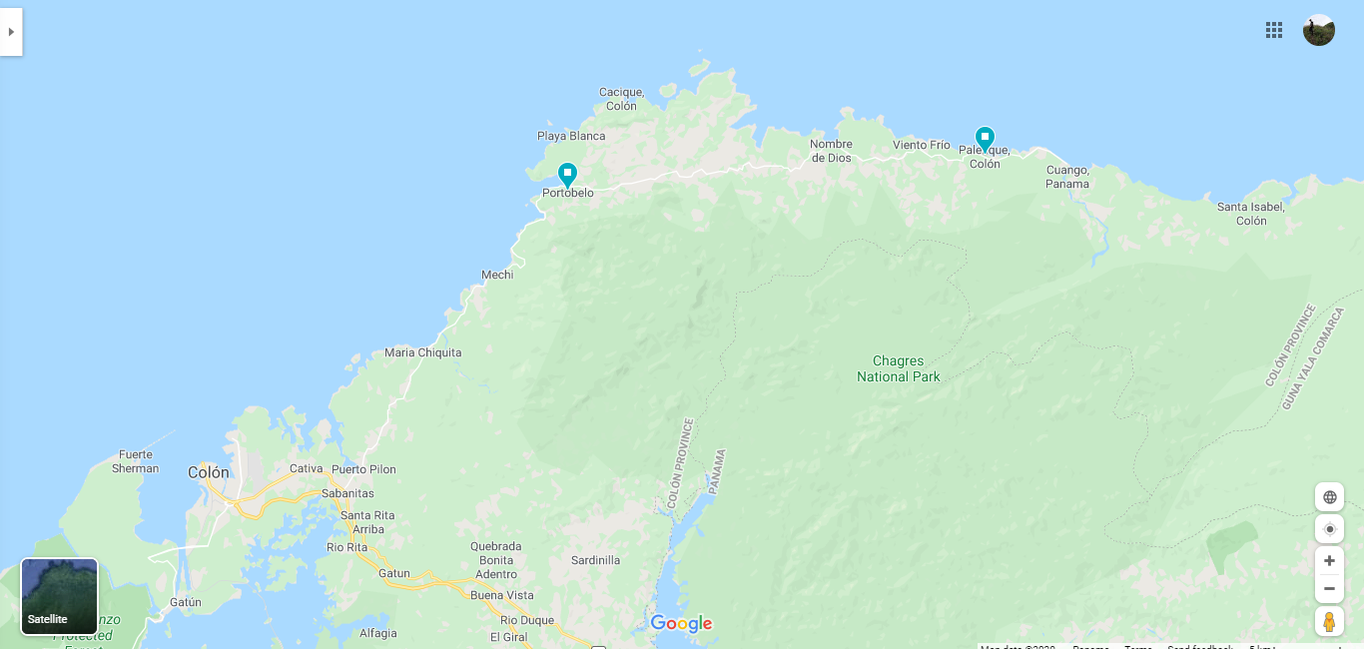|
Future Scientist sees composting as the future of organic waste management for small rural communities. This year we are making it a priority and we are actively working with two communities in Costa Arriba, Colón to make it a reality. After much deliberation in 2019, we have begun to lay the foundation for our community compost project in Palenque, Colón. This year we want to focus on our compost projects that we have lined up for Palenque and Portobelo, Colón. They are very similar in the sense that we want to involve the communities in the projects as the primary caretakers and beneficiaries. An image of the entire country of Panama. The two points are the two communities of Portobelo and Palenque. An image of the entire province of Colón. The two points are the communities of Portobelo and Palenque. An image of the Costa Arriba region of the province of Colón. The two points are the communities of Portobelo and Palenque. Composting in Jacoba Urriola Solís
In Portobelo we have begun to get quotes for the materials and we have the contractor who will build the site for the creation of the compost. The school will have easier logistics due to the fact that we are working directly with the school and the students. We hope to integrate the community in its contribution to the compost by asking the surrounding houses to bring their organic waste to the compost site and help it to grow. This way it won’t just be the cafeteria that is contributing to the compost pile but rather a more collective effort between community and school. The students will serve as the managers and caretakers of the site. It will serve them as future agricultural scientists and in turn the school will receive nutrient-rich compost for the school crops and the neighbors' houseplants. This will serve as a great way to educate the surrounding community members on organic waste management as well as organic farming. The students will benefit by getting valuable experience in taking care of a large scale organic composting operation that will serve them in their future careers. What Future Scientist will get out of it is data on the amount of waste weight that is lost when composting organic material as well as data on the well-being of households that participate in the composting program. Perhaps with increased awareness in waste management tactics households will do their part in better managing the waste in their communities. These are all things we will see as the project progresses. Waste Management in Palenque The goal of the project in Palenque is to educate the community in effective waste management as well as provide them a site in order to use these skills in creating something of community benefit. The compost site would be key in eliminating organic waste from local dumps and converting it into something of real value that could generate a small amount of funds for community use. Ideally we want it to imitate the self-sustainable compost center we visited in La Escuela Vocacional Especial in Panama City (https://basuracero.mupa.gob.pa/iniciativas-y-proyectos/centro-de-aprovechamiento-de-organicos/). This compost center is part of the Municipality’s initiative called BasuraCero (Zero Waste) and it has a rehabilitated work force of ex-convicts trained in organic waste management and composting. To the date the center has processed 160 tons of organic waste that is brought to it from all around the metropolitan area. The site is integrated into the school and students participate in its function and contribute the food scraps from the cafeteria to the compost piles. The site is a fully integrated system, both in collection of organic material to the rehabilitation of its personnel. This is what we hope to achieve in Palenque. We want the town to become a center for organic waste management by eliminating a third of the waste produced in an average panamanian household (http://aaud.gob.pa/plangestion/Docs/ANEXOS/20170731_E%201.3.3.3.5_Propuesta%20Nuevo%20Modelo%20de%20Gestion_v3.pdf), creating a self-sustainable nursery for the selling and exchange of plants and flora, and a economic stimulus for the community where many people don’t have stable work. Here the people and businesses from various neighboring communities can bring their organic waste to be processed, thereby saving them money and time as well as helping them contribute to a cleaner community. In Palenque we have spent a lot of time planting the seeds (pun intended) for this vision that we want to achieve in the community. We have had many meetings among the Future Scientist team as well as the team working directly in Palenque. The team in Palenque consists of myself and Francisco Pizarro from Let’s Do It!-Panamá and we met multiple times in order to develop our strategy for the project’s implementation and how we would both create a solid infrastructure as well as an education program to back it up. In the last week of February, we took our first steps in making this vision a reality. Conclusion The coronavirus pandemic has put a stop to our trips to Colón and thereby we won't be able to advance things on the ground. We will be joining the fight against COVID-19. We will be providing content regarding preventive health habits and tips to stay safe and healthy during the pandemic as well as other pertinent information regarding the virus. We will work on creating a greater online presence during our time practicing social distancing and self-quarantine. Stay-tuned for more information in future newsletters, social media posts, and on our website at futurescientist.org. |
Archives
July 2020
Categories |




